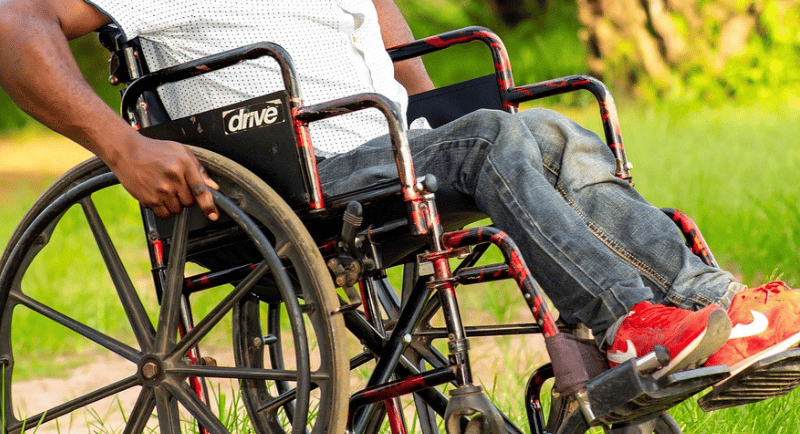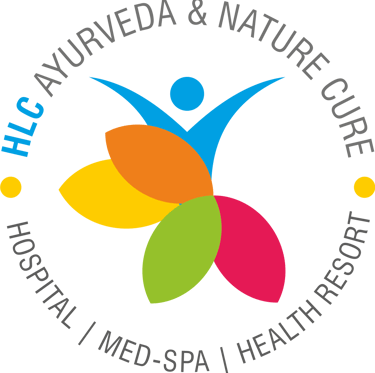Understanding Paralysis: Types, Causes, Symptoms, and Holistic Treatment Approaches
Paralysis is a loss or impairment of motor function caused by damage to the brain, spinal cord, or nerves. It can be partial or complete and affects various body parts, including limbs, face, or respiratory muscles. This guide explores the types of paralysis—monoplegia, hemiplegia, paraplegia, quadriplegia, and locked-in syndrome—alongside its common causes like spinal cord injury, stroke, multiple sclerosis, and neurodegenerative diseases. Symptoms such as loss of muscle control, numbness, or difficulty in balance highlight the need for prompt care. The synergy of Ayurveda and Nature Cure offers a holistic approach to healing, combining detoxification, rejuvenation, and lifestyle changes for effective recovery. Discover the benefits of personalized, natural therapies and comprehensive rehabilitation in regaining strength and independence.


Paralysis occurs when there is a loss or impairment of motor function in the body. It is caused by damage to the brain, spinal cord, or nerves that control movement. Paralysis can be partial or complete and can affect any part of the body, from the arms and legs to the face or respiratory muscles. Depending on the extent and location of the damage, paralysis can be temporary or permanent.
Types of Paralysis
Paralysis is categorized into different types based on the nature of the impairment and the areas of the body affected:
Monoplegia: Paralysis that affects only one limb, typically an arm or leg.
Hemiplegia: Paralysis affecting one side of the body, including the arm, leg, and sometimes the face. Hemiplegia is often seen in stroke survivors.
Paraplegia: Paralysis affecting both legs and sometimes parts of the torso. It often results from spinal cord injuries.
Quadriplegia (Tetraplegia): Paralysis affecting both the arms and legs. This is usually caused by injury to the cervical spine (the neck area) and may also impact the torso and breathing.
Locked-in Syndrome: A rare and extreme form of paralysis where a person is conscious and aware but unable to move most of their voluntary muscles, except for the eyes.
Causes
Paralysis can be caused by several different factors, which are usually linked to damage to the central nervous system (CNS), either the brain or the spinal cord. Here are some of the most common causes:
Spinal Cord Injury: One of the leading causes of paralysis is spinal cord injury, often resulting from trauma (e.g., car accidents, falls, sports injuries, or violent acts). The spinal cord plays a critical role in sending messages between the brain and the rest of the body. When it is damaged, communication is disrupted, leading to paralysis.
Stroke: A stroke occurs when the blood supply to the brain is interrupted, leading to the death of brain cells. If the stroke affects areas of the brain responsible for motor control, it can cause paralysis on one side of the body (hemiplegia).
Multiple Sclerosis (MS): MS is an autoimmune disease in which the body’s immune system attacks the protective covering of nerve fibers (myelin), impairing communication between the brain and spinal cord. This can result in partial or complete paralysis in various parts of the body.
Cerebral Palsy: This is a group of neurological disorders that affect muscle coordination and movement. It usually results from brain damage occurring before, during, or shortly after birth. Paralysis in cerebral palsy typically affects the limbs and can range from mild to severe.
Infections and Inflammation: Infections such as polio, viral infections, and conditions like meningitis or encephalitis can cause paralysis by damaging the nervous system. Guillain-Barré syndrome, a rare disorder in which the body’s immune system attacks the peripheral nerves, can also lead to temporary paralysis.
Traumatic Brain Injury (TBI): A blow or injury to the head that results in brain damage can lead to paralysis, depending on which part of the brain is affected. TBIs are often caused by accidents, falls, or violent impacts.
Neurodegenerative Diseases: Conditions like amyotrophic lateral sclerosis (ALS), also known as Lou Gehrig's disease, gradually impair the motor neurons responsible for controlling voluntary muscle movement, leading to progressive paralysis.
Symptoms
The symptoms of paralysis vary depending on the cause and the area of the body affected. However, common signs and symptoms include:
Loss of muscle strength or control in certain parts of the body.
Numbness or tingling sensations in the affected area.
Difficulty moving or maintaining balance.
Inability to move a limb, body part, or even control facial muscles or speech.
Loss of sensation in the affected region (e.g., the skin or limbs).
In severe cases, paralysis can also affect breathing and swallowing, requiring immediate medical intervention.
The Synergy of Ayurveda and Nature Cure in Paralysis
While Ayurveda and Nature Cure are distinct healing systems, they complement each other perfectly in the treatment of paralysis. Ayurveda provides a comprehensive approach to restoring dosha balance and rejuvenating the body’s systems, while Nature Cure focuses on the body’s natural healing abilities using detoxification, natural therapies, and lifestyle changes.
The combination of both systems can lead to remarkable results for those seeking recovery from paralysis. By cleansing the body, strengthening the nervous system, reducing inflammation, and enhancing overall vitality, individuals have the opportunity to regain movement, strength, and independence.
Why Choose Ayurveda and Nature Cure for Paralysis
Many people are turning to specialized Ayurveda and Nature Cure hospitals for paralysis treatment because these institutions offer personalized care in a holistic and natural setting. These hospitals combine traditional knowledge with modern therapeutic techniques to provide tailored treatment plans for each patient.
Holistic and Personalized Care: Treatments are customized according to individual health conditions and needs.
Natural Healing: These therapies use natural, non-invasive treatments that support long-term health and wellness.
Experienced Practitioners: Trained professionals with expertise in Ayurvedic and Naturopathic treatments ensure safe and effective healing processes.
Comprehensive Rehabilitation: Along with physical therapies, mental health and emotional support are key components of the healing process.
Family, friends, and caregivers play an essential role in the lives of those affected by paralysis. Encouragement, emotional support, and physical assistance can make a big difference in recovery and overall well-being.




